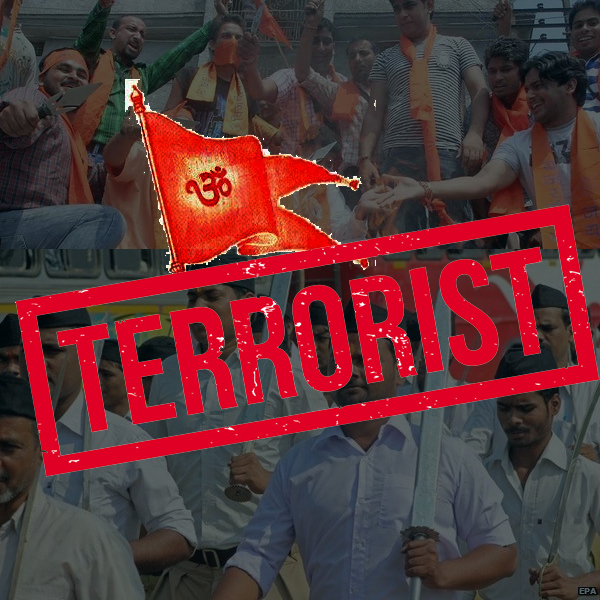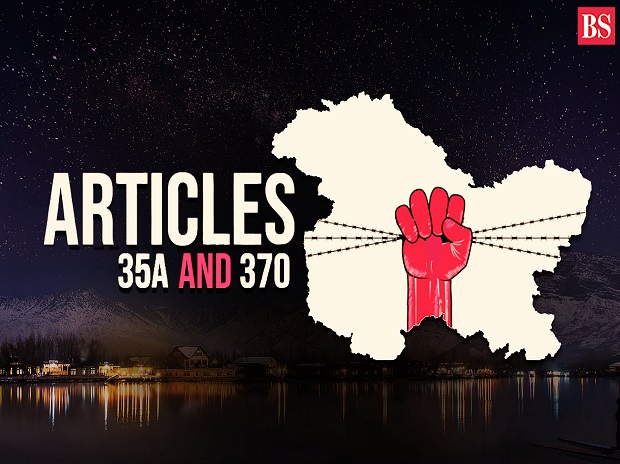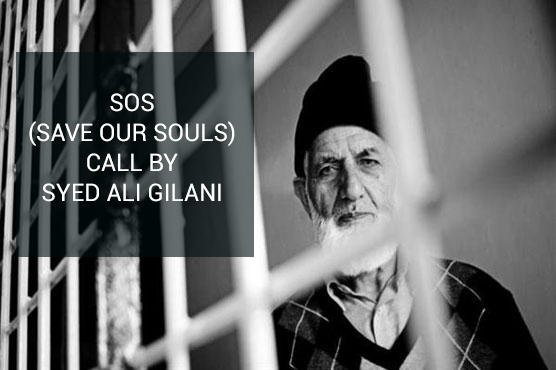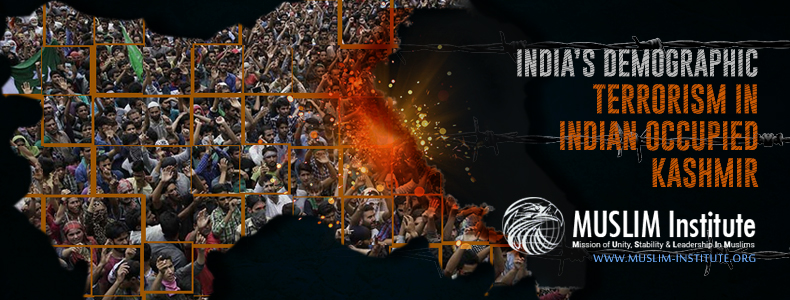|
Kashmir, the northwestern region of sub-continent, has been subject to dispute between India and Pakistan since the partition of the subcontinent in 1947. It is also known as ‘the unfinished agenda of partition of Indo-Pak sub-Continent.’ Owing to this conflict, the two states have undergone for several hot and cold wars. As a result of first Indo-Pak war of 1947-48, the Kashmir was divided into Indian occupied “Jammu and Kashmir” (comprising the regions of Kashmir valley, Jammu and Ladakh) and Azad Kashmir (comprising the regions of Azad Kashmir and Gilgit Baltistan). A ‘Cease Fire Line’ was established by United Nations Resolution in 1949 which divides the regions of Azad Kashmir and Indian Occupied Kashmir (IOK). This Cease Fire Line was slightly altered in the Indo-Pak Simla Agreement of 1971 and renamed as the Line of Control (LoC). The Indian leadership in the aftermath of partition, Lord Mountbatten, Jawahar Lal Nehru and others, gave a so-called special status to the disputed state of Jammu and Kashmir under the article 370 and article 35-A (explained below) of the Indian constitution. Furthermore, India agreed to resolve the dispute through a plebiscite in the disputed territory under the UN Resolutions but later on refused to do so thereby disrespecting the UN Resolution over Kashmir. In other words, Kashmir issue is the struggle of millions of Kashmiris for their right of self-determination- a globally recognized fundamental human right.
Although the people of IOK are struggling for their ‘right of self-determination’ for decades, the current wave of civilian freedom movement started with the martyrdom of Burhan Muzaffar Wani, a young freedom fighter, in 2016. India has been using its ‘bogus strategy’ to forcefully crush this movement since the birth of this conflict. Perpetual human rights violations, atrocities, draconian laws and state-sponsored genocide in Jammu and Kashmir by Indian occupying forces have become an irrefutable reality. To date, more than 100 thousand innocent Kashmiris have been martyred in IOK after facing brutal barbarianism of Indian forces. Two latest reports by the Office of the United Nations High Commissioner for Human Rights (OHCHR), released in June 2018 and July 2019, are ample testimony of this fact. Furthermore, India has been following a strategy to change the demographic composition of IOK by planned permanent settlements of non-Kashmiri non-Muslims in the Muslim dominated regions of the disputed territory. Mr. Rajnath Singh, the Federal Home Minister of the government of Bharatiya Janata Party (BJP), unveiled such a plan in April 2015 under which 200,000 to 300,000 non-Kashmiri Hindus were planned to be settled in IOK. Multiple Sainik colonies for the permanent settlements of the retired Indian soldiers in IOK depict the Indian autocratic vision to change the demography of the region. Undoubtedly, demographics can reshape politics by redrawing the boundaries of population in IOK. Article 370 of Indian constitution was the only legal right which protected the semi-autonomous status of IOK against Indian demographic terrorism.
|
|
 The Indian Hindu fundamentalist-extremist organization Rashtriya Swayam Sevak Sangh (RSS), its brainchild Bharatiya Janata Party (BJP) and many other Hindu extremists have long desired to end the autonomous status of IOK. Even the founder of Bharatiya Jana Sangh (the predecessor of BJP), Syama Prasad Mukherjee, was a staunch proponent of fuller integration of Jammu and Kashmir with India. He was imprisoned by the government of Sheikh Abdullah in Srinagar where he died in 1953 while championing the cause of integration of Jammu and Kashmir to India. Since then, the BJP has been following this agenda. During the 2019 general elections of India, the BJP included the abrogation of Articles 370 and 35A in its election manifesto. The Indian Hindu fundamentalist-extremist organization Rashtriya Swayam Sevak Sangh (RSS), its brainchild Bharatiya Janata Party (BJP) and many other Hindu extremists have long desired to end the autonomous status of IOK. Even the founder of Bharatiya Jana Sangh (the predecessor of BJP), Syama Prasad Mukherjee, was a staunch proponent of fuller integration of Jammu and Kashmir with India. He was imprisoned by the government of Sheikh Abdullah in Srinagar where he died in 1953 while championing the cause of integration of Jammu and Kashmir to India. Since then, the BJP has been following this agenda. During the 2019 general elections of India, the BJP included the abrogation of Articles 370 and 35A in its election manifesto.
In his second term, Indian Prime Minister Narendra Modi has become extremely aggressive and has been defying United Nations Security Council resolutions as well as international laws with impunity. Having more than seven hundred thousand troops deployed in Kashmir, which is known as the world’s highly militarized zone, the current Indian government has recently injected seventy thousand additional troops in IOK. Now, the soldier to civilian ratio will become approximately 1:7. Last week, the tourists were forced to leave IOK. The Muslim political leadership of IOK is under house arrest. The current use of brutal violence against unarmed Kashmiri people depicts a long term plan of ethnic cleansing in IOK by Indian forces. Additionally, India has targeted the civilian population in Azad Kashmir (along the LoC) with cluster toy bombs (banned) violating international laws, conventions, and customs. Kashmir conflict has become a nuclear flashpoint in South Asia between two antagonists– India and Pakistan.
 Alarmingly, in a malicious attempt amid the ongoing unrest and increased military presence, on August 05, 2019 India has scrapped Article 370 of the Indian Constitution. Article 370 of the Indian Constitution which linked the central Indian government to IOK came into force on January 26, 1950. Although Article 370 and Article 35-A were legally null and void yet they provided some rights to the Kashmiris. According to the provisions of Article 370, Jammu and Kashmir was having its own constitution thereby providing it a special autonomous status. In addition to that, as per provisions of the article, the state of Jammu and Kashmir was allowed to have its own flag. Under the provisions of Articles 370 and 35-A, Indian citizens could neither become citizens of IOK nor could buy any property there. But now, with the revocation of Article 370, the Indian constitution will be applied to Jammu and Kashmir just like it is applicable to the other states of India. Moreover, people from outside Jammu and Kashmir can also buy land and permanently settle there as full citizens. Similarly, contrary to the earlier conditions, now the Indian government can enact and implement laws directly without the approval of the state legislature. In addition to that, the BJP government is going to divide the state into two territories. Indian Home Minister Amit Shah, in his address to the upper house of the Indian Parliament, said, “Kashmir will no longer be a state. It will be divided into two union territories, Kashmir, which will have a legislature, and Ladakh, which will be without a legislature.” Alarmingly, in a malicious attempt amid the ongoing unrest and increased military presence, on August 05, 2019 India has scrapped Article 370 of the Indian Constitution. Article 370 of the Indian Constitution which linked the central Indian government to IOK came into force on January 26, 1950. Although Article 370 and Article 35-A were legally null and void yet they provided some rights to the Kashmiris. According to the provisions of Article 370, Jammu and Kashmir was having its own constitution thereby providing it a special autonomous status. In addition to that, as per provisions of the article, the state of Jammu and Kashmir was allowed to have its own flag. Under the provisions of Articles 370 and 35-A, Indian citizens could neither become citizens of IOK nor could buy any property there. But now, with the revocation of Article 370, the Indian constitution will be applied to Jammu and Kashmir just like it is applicable to the other states of India. Moreover, people from outside Jammu and Kashmir can also buy land and permanently settle there as full citizens. Similarly, contrary to the earlier conditions, now the Indian government can enact and implement laws directly without the approval of the state legislature. In addition to that, the BJP government is going to divide the state into two territories. Indian Home Minister Amit Shah, in his address to the upper house of the Indian Parliament, said, “Kashmir will no longer be a state. It will be divided into two union territories, Kashmir, which will have a legislature, and Ladakh, which will be without a legislature.”
 According to clause 3 of Article 370, the President of India can declare that this Article ceases to be operative by public notification, but only on the recommendation of the Constituent Assembly of the State. Interestingly, that so-called Constituent Assembly of IOK was dissolved in 1957 and has ceased to exist. Therefore, the current presidential order to revoke Article 370, in the aforementioned scenario, is illegal. Moreover, IOK is an internationally recognized disputed territory. Any unilateral step by the Government of India cannot change its disputed status as described in the United Nations Security Council (UNSC) Resolutions. The Muslim political leadership of IOK along with other most of the opposition parties of India is strictly against this illegal ‘constitutional amendment.’ Event Mehbooba Mufti, the leader of Peoples Democratic Party and Former so-called Chief Minister of Jammu and Kashmir, has also declared this decision “illegal and unconstitutional.” According to clause 3 of Article 370, the President of India can declare that this Article ceases to be operative by public notification, but only on the recommendation of the Constituent Assembly of the State. Interestingly, that so-called Constituent Assembly of IOK was dissolved in 1957 and has ceased to exist. Therefore, the current presidential order to revoke Article 370, in the aforementioned scenario, is illegal. Moreover, IOK is an internationally recognized disputed territory. Any unilateral step by the Government of India cannot change its disputed status as described in the United Nations Security Council (UNSC) Resolutions. The Muslim political leadership of IOK along with other most of the opposition parties of India is strictly against this illegal ‘constitutional amendment.’ Event Mehbooba Mufti, the leader of Peoples Democratic Party and Former so-called Chief Minister of Jammu and Kashmir, has also declared this decision “illegal and unconstitutional.”
Regrettably, as discussed earlier, the revocation of Article 370 is not an instant decision. Historically, the BJP has been belligerent to Kashmir's autonomous status and had breached many international laws and conventions but that attitude remained unquestioned by the international community. Unfortunately, the negligence on earlier illegal moves of India in IOK by the international community has given BJP courage for this unlawful step. The current BJP government is not only trying to facilitate demographic changes at a larger scale in IOK through illegally addressing the constitutional hurdles but also replicating the Israeli model of illegal settlements in occupied territory. The prime interest of the current extremist Indian government is to utilize all social, political, military, intelligence, and religious tools to convert the majority of Kashmiris to the minority. Hence, the Indian efforts of “land grab” to change the status of IOK can be truly declared as Indian Demographic Terrorism. This Indian move can further deteriorate the peace and security situation of the region.
|
|
 It is the high time for Pakistan to engage the world on various diplomatic fronts and unveil Indian atrocities to the International Community. The apprehensions of Syed Ali Gilani, the most senior political leader of the freedom movement in IOK, about the possible biggest genocide in IOK and message for help to the Muslims of the world in his recent tweet should be taken seriously. Pakistan should send a diplomatic commission to other countries for their moral and material support. United Nations Secretary-General should be approached to convene an emergency special session of the United Nations Security Council to deal with this issue. UN should take strict actions against the breach of international laws and human right violations by India. Pakistan should also call upon an International summit on status of IOK. It should be properly conveyed to the international community that peace in the region (especially Afghanistan and Kashmir) is inter-linked and the regional peace depends upon the settlement of Kashmir and Afghan conflict. It is the high time for Pakistan to engage the world on various diplomatic fronts and unveil Indian atrocities to the International Community. The apprehensions of Syed Ali Gilani, the most senior political leader of the freedom movement in IOK, about the possible biggest genocide in IOK and message for help to the Muslims of the world in his recent tweet should be taken seriously. Pakistan should send a diplomatic commission to other countries for their moral and material support. United Nations Secretary-General should be approached to convene an emergency special session of the United Nations Security Council to deal with this issue. UN should take strict actions against the breach of international laws and human right violations by India. Pakistan should also call upon an International summit on status of IOK. It should be properly conveyed to the international community that peace in the region (especially Afghanistan and Kashmir) is inter-linked and the regional peace depends upon the settlement of Kashmir and Afghan conflict.
The Malaysian Prime Minister Dr. Mahathir bin Mohamad and Turkish President Recep Tayyip Erdogan have assured Government of Pakistan of their steadfast support in this regard. The Organization of Islamic Cooperation (OIC) has also reaffirmed its full support to the people of IOK in their just struggle to achieve their legitimate rights, in particular the right to self-determination. Similarly, other responsible countries should also play their role for the sake of justice and supremacy of United Nations resolutions. The international community needs to make the Indian government realize that under the United Nations resolution on the status of Kashmir, any unilateral act of the Indian government would be considered unlawful. Indian irresponsible war-mongering move at a point of time when the President of USA offered to mediate the longstanding conflict should be condemned worldwide. The international community should acknowledge Pakistan’s efforts for peace and stability in the region as evidenced in its multiple invitations to India for dialogue on all bilateral issues. Keeping in view the current Imran-Trump discussion on Kashmir issue, constructive dialogue can be arranged with the help of the USA for peaceful settlement of this dispute. The international community should comprehend that IOK is located in a nuclear ring. Owing to the possibility of escalation of the conflict, misperception of the threat can easily destabilize the international peace and security.
|

